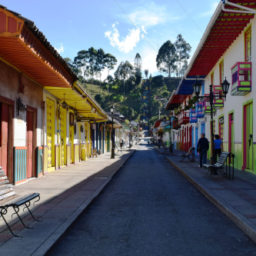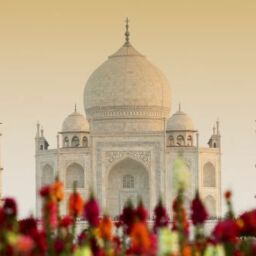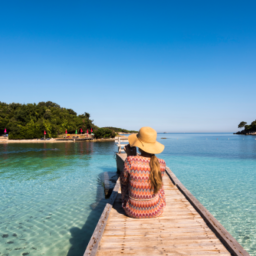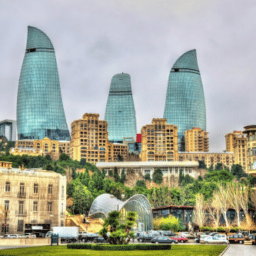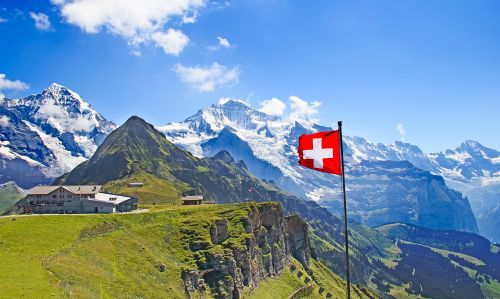

Located in the heart of Europe, Switzerland is famous for its picturesque landscapes, watchmaking precision, banks, excellent cheeses, and chocolate, as well as political neutrality and economic stability. With a population of less than 9 million, Switzerland is one of the richest countries in the world and is recognized for its commitment to the protection of the environment and human rights.
However, there’s one thing the Swiss haven’t achieved over the centuries of history, namely they have never created their own unique language. Why has this happened and what languages are used in Switzerland? You will find the answers in the text below. Read on!
Contents
Get to know Switzerland
Switzerland is a country, with an area slightly smaller than the Czech Republic, located in Western Europe. It borders Germany to the north, Austria and Liechtenstein to the east, Italy to the south and France to the west. The country is divided into 26 cantons, each with its own constitution, government, and parliament.
The largest cities in Switzerland are Zurich, with a population of approximately 434,000, Geneva, with a population of approximately 200,000, Basel (approximately 175,000 inhabitants), the seat of government Bern (approximately 133,000 inhabitants) and Lausanne (approximately 120,000 inhabitants).
Switzerland is famous primarily for the picturesque landscapes of the Alps, which cover about 60% of the country’s area. The highest peak is the Dufourspitze, rising to a height of 4,634 m above sea level. In the valleys between the mountains, there are numerous lakes and rivers, such as the Geneva, Zurich, and Rhine.
The culture of Switzerland is very diverse and includes German, French, Italian, and Rhaetian elements. About 60% of the population speaks German, 20% French, 8% Italian, and the rest are Romansh and English. Switzerland is also famous for its excellent cheeses, such as Emmentaler or Gruyère, as well as delicious chocolate.
Switzerland is one of the richest countries in the world with a high standard of living. Most of the country’s economy is based on services, trade, tourism, and the pharmaceutical and engineering industries. It is also known for its watchmaking, as well as for the production of surgical instruments and stainless steel products.
Furthermore, the country enjoys stable politics and is governed by the rules of a direct democracy, where the people of the country have a direct stake in decision-making in the government. Switzerland is also the seat of many international organizations such as the United Nations, CERN, and the International Red Cross.
Is there a Swiss language?
There is no single official Swiss language in Switzerland. The lack of clearly defined language results from the historical and cultural conditions of the country. For many centuries, it was divided into many smaller territories where people spoke different languages, which contributed to the development of various cultures and dialects.
Switzerland is also not a single nation state, but a federation of cantons with different languages, cultures, and traditions. In such a context, creating an unambiguous Swiss language would be difficult and controversial, since each of the national languages has its own culture, history, and traditions, as well as a strong position in its regions.
What languages are spoken in Switzerland?
Switzerland is famous for its multilingualism, so finding a person there who does not speak at least two languages can be quite difficult. There are mainly four languages spoken in the country: German, French, Italian, and Romansh. For this reason, many Swiss speak at least two languages, and many even three or four. When visiting Switzerland, it is, therefore, worth learning the basic phrases in the language spoken in the particular region to which you are going. The second-best option is German, which is spoken by the vast majority of locals. Not only will it ease communication with the Swiss, who are proud of their multilingualism, but you will also gain their sympathy and respect.
Which languages are considered official in Switzerland?
In 1848, Switzerland adopted a constitution that established four official national languages: German, French, Italian, and Romansh, reflecting the country’s cultural diversity. Although German is the most widely spoken, in law, all official languages are equal.
First official language – Schwyzerdütsch
The most common language in Switzerland is German, referred to as Schwyzerdütsch. This means Swiss German, which is spoken by around 60% of the country’s population. It is a broadly understood collection of Alemannic dialects that are not spoken in Germany and Austria.
Swiss German is most easily found in the northern, central, and eastern parts of the country. However, there is no need to worry that when you are in Switzerland you will not be able to communicate with a native if you speak classical German. All schools teach classical German as a compulsory language, and Swiss German is not used in writing. The most important documents, information, and legal acts are written in standard German.

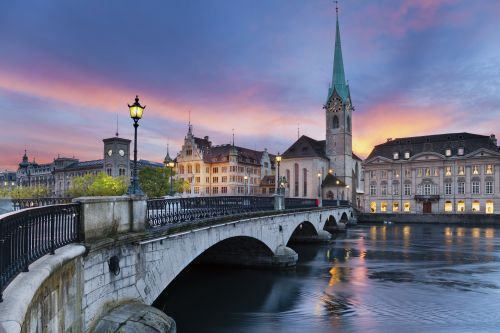
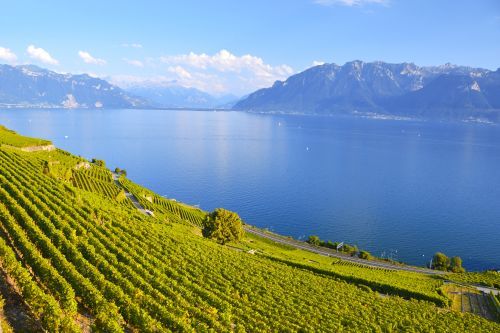
The second official language – French
In Switzerland, the second most popular language is French, specifically its dialect called “Helvetic”. French-speaking citizens make up about 20% of the population, and the largest speakers of this language can be found in Lucerne and Geneva. Besides Geneva, the cantons of Jura, Neuchatel, and Vaud also use this language.
As with Swiss German and Standard German, there is not much difference between Swiss French and standard French. Although there are some differences in vocabulary and expressions, Swiss French should not be a problem for people who know the basics of the French language.
The third official language – Italian
Another official language is Italian, specifically its Swiss variety. It is spoken by slightly more than 8% of the country’s population, i.e. about 350,000 people. Italian is widely spoken in the south of the country, mainly in the canton of Ticino and Graubuenden and the valleys of St. Gotthard, Luxmanier, San Bernardino, Maloja.
As with Swiss French, Swiss Italian is relatively easy to understand for anyone with a basic knowledge of the Italian language. Although there are local dialects such as the Ticinese and other Lombard dialects, the Italian spoken in Switzerland is very close to standard Italian, the only major differences being German and French loanwords.
Fourth official language – Romansh
Switzerland’s fourth and last official language is the Romance language, also called Romansh. This language includes five Romansh dialects, mainly spoken in the canton of Graubünden. Roughly 37,000 citizens speak the Romansh language, whose speakers come from the remote mountainous parts of south-eastern Switzerland.
Romansh is a Romance language that contains many vocabulary and syntax borrowings from German, which has contributed to its survival in these traditional areas of speech, despite the significant influence of Italian and German.
Respecting dialects
In Switzerland, regional dialects are highly valued and respected, and their preservation and nurturing is an important element of national culture and heritage. Dialects are often used in everyday situations, both in private and professional life, and are an important element of the cultural identity of various regions of the country.
Additionally, there are organizations and associations in Switzerland that protect and promote regional dialects. In some regions, such as the canton of Graubünden, the dialect may even be used in schools as the language of instruction or as an additional subject.
At the same time, Swiss citizens are also obliged to use the official language of their canton in official documents and in contact with the authorities.
Basic phrases in German
If you want to communicate in Switzerland, the most important language you should learn is German. It is the most common language spoken in the country, and you will most likely have more opportunities to use it than other languages. German is also the most common language used in business and education.
Below is a glossary of basic phrases in German. They will be useful not only in Switzerland, but also in other German-speaking countries. Knowing just these few expressions will make you feel more confident when travelling abroad.
- Ja – yes
- Nein – no
- Ich – I
- Entschuldigung – excuse me
- Bitte – please
- Danke – thank you
- Wie viel kostet das? – How much does it cost?
- Guten Morgen – hello (before noon)
- Guten Tag – hello (after noon)
- Ich habe… – I have…
- Ich heiße… – My name is…
- Wie heißen Sie? – What is your name?
- Ich wohne in… – I live in…
- Haben Sie noch Zimmer frei? – Are there any free rooms?
- Was kostet das Zimmer die nacht? – How much does a room for a night cost?
- Wie viel Uhr ist es? – What time it is?
- Wie komme ich am besten zu…? – What is the best way to get to…?
- Ich habe ein Problem – I have a problem.
- Ich verstehe nicht – I don’t understand.
- Ich habe mich verlaufen – I’m lost.
- Was wünschen Sie? – What would you like?
Further resources can be found on our website.
Languages of Switzerland with Skrivianek
Although small in terms of area, Switzerland impresses with its influence on the international stage, and also delights tourists with its beautiful landscapes and high standard of living. It is certainly worth getting to know this fascinating country closer and appreciating its many advantages.
Depending on which canton you are going to visit, a different language will come in useful. If you want to improve your German, French, or Italian, our team is here to help you. We offer individual or group language courses tailored to your needs!
And if you need something important translated, our translators will take care of it for you. Detailed information about our offer can be found on our website. Check it out!

